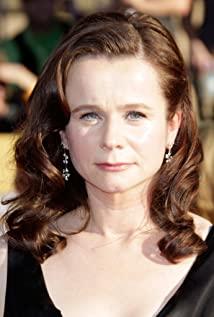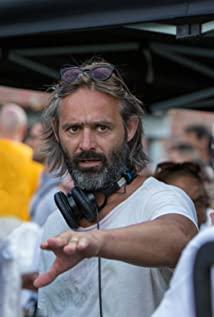Of course, none of the above is a slot. Based on true stories, human beings are so fragile at that height, and they have collected so many lives in just one snowy night. The scenery is beautiful and the rhythm is good, so that people can always be immersed in the plot. The scene where the protagonist talks with his wife is sad, but he doesn't feel the sensational deliberateness. It can be said that it is handled well.
It's mainly a feeling of "opening a new window" to see it so burning. Mountain climbing seems to be too far away from city life to be considered. Looking at it this way, I learned a lot of things I never knew. By the way, I think everyone in the play is too vigorous. I myself have been up to 4000 meters above sea level, and I have been extremely slow. At 8000 meters, as far as I know, ordinary people need to breathe more than a dozen times before they can take a step. I can only guess that this oxygen cylinder has a miraculous effect.
Now I’m going to digress. Let’s first come to the Mount Everest tour package-it’s said that as long as you have money, you can basically go to the summit of Mount Everest. It costs seven to eighty thousand dollars-if the film says 65,000, I don’t know if it includes equipment and airfare. It takes at least two and a half months. This is why most of the people in the play are not professional except for the guide and sherpas.
Let's have a little high-altitude science popularization--Nan Zhu said that after 8000 meters, your body will stop, which is not an exaggerated rhetoric. It's not just a problem of insufficient oxygen. There is basically no sleep, and I can’t sleep even when I lie down, unless I’m really dying. The reason is-the body is afraid of your death-so the alarm will be activated when the breathing is shallow and slow to wake you up. Eating has also become an impossible task. Because digesting food requires energy, the small abacus is pulled, and the body finds that the energy gained from digesting food under that harsh condition is not cost-effective compared to the energy consumed, so the digestive function is inhibited.
Although Mount Everest is the highest, it is not the most dangerous. It probably has something to do with the terrain, climate, existing facilities, and supporting forces. And the best weather for climbing each year is April and May, so strange phenomena such as "overcrowding" and "big bottleneck traffic" on Mount Everest are definitely not bluffing.
It’s hard to see the movie. In fact, the biggest war of words about the disaster on May 10, 1996 was not about "Rob Hall, why did you leave the orphan and widow", but about Rob Hall's team. Krakauer, a journalist in China, disagrees with Anatoli Boukreev, an expert guide in Scott Fischer's team.
Although I didn't look for a book to read it, I learned about the gossip before and after. In fact, these two people can't be said to be tit-for-tat. In my opinion, the three views are different. The reporter’s unique skill is "We have to reflect and reflect on such a big disaster. I am guilty and I can't save them." And the mountaineer Boukreev is "I have done everything that can be done, and I have not done what I can't save. The way, I am not a god." Even if I can fight like this, I am drunk. . .
In short, there are some things that are not controversial, and I have also made up for it:
Boukreev does not take oxygen when climbing (good cow, looking up). It is said that he brought a spare. attack). The Great God reached the summit early and stayed there for more than an hour and a half. Seeing that there were few teammates, and there was no radio on his body, he started to go down the mountain to see if there were any conditions. On the way down the mountain, I saw teammates moving fast, and another friendly guide, Neal, was accompanying the customer while moving fast, but nothing happened. It seems that the great god threw the oxygen cylinder he had carried all the way (the brain has been variously impatient) to Neal himself and went down the mountain (the reason is that the great god himself does not need it, and Neal can carry it for customers to use). So before it got dark, the great god went back to the highest camp to drink tea and sleep.
In the evening a blizzard blew, the people on the mountain were slow to get off, and everyone was spartan. Only then did the great god move out, and climbed up in the darkness against the wind and snow. It is said that he did not find anyone for a long time after going out for the first time. He returned to rest for a while and continued to move out. After such repeated actions, he was led back to three people.
My impression is that the great god is indeed the great god, but where is Krakauer's slot?
1. How can the guide not bring an oxygen cylinder? !
There seems to be a lot of logic for complaining here, such as not following the most basic safety measures. For example, if you take oxygen, you can save more people with better physical strength. For example, oxygen cylinders can be used by customers who need them.
It made me laugh.
2. How can the guide not accompany the customer to take care of the customer? !
The answer is simple. Being with customers may not take good care of customers. Please take a look at how Rob Hall does it.
3. . .
4. . .
Let me complain about Krakauer’s two main problems: one is that if he feels guilty, he has to bring everyone to bear the responsibility. According to him, "the most unbearable is that Boukreev did not admit that there was any error in his judgment that day, and act. If there is anything wrong, I don't even consider how I could mitigate the consequences of this disaster, this kind of extreme arrogance." Second, he has a very exaggerated obsession with the relationship between the two roles of "guide" and "customer." Is it the logic of "It's the uncle who pays"? Boukreev is said to have made twenty-five thousand dollars from this trip, but is this money used to buy his life? In fact, whether it is a guide or a customer, all roles and identities have disappeared in that situation. Maybe some people’s logic is to "take care of yourself first, and then consider how to help others" is called selfishness. In any case, expecting others to dedicate their lives to save them, then I really have nothing to say. My personal feeling is that if I braved the blizzard and the dark night to get stuck under Mount Everest, the best thing I could imagine was that I was fortunate to have paid a lot of money for people like Boukreev, so that he might I felt a little bit of responsibility, and took a lot of responsibility, but because he was a great god, he felt that he could still control the risk to come out to rescue me. That's really grateful!
The fact is that you can only rely on your own two legs to get to Mount Everest alive, so you can do it like this and have not yet been born. So because he is too weak to act, it is also a reality to be abandoned by his teammates while he is still alive.
So what's the meaning of mountaineering? . . Many people say that mountaineering is a super selfish act, spending a lot of money, time and energy, and may kill oneself at any time, and then there is no actual output. For most fans, it is just a sense of personal accomplishment and does not contribute to society. . I can't refute all of this, but I still have a strong sympathy for mountaineering. What's the matter with this burning feeling?
View more about Everest reviews











